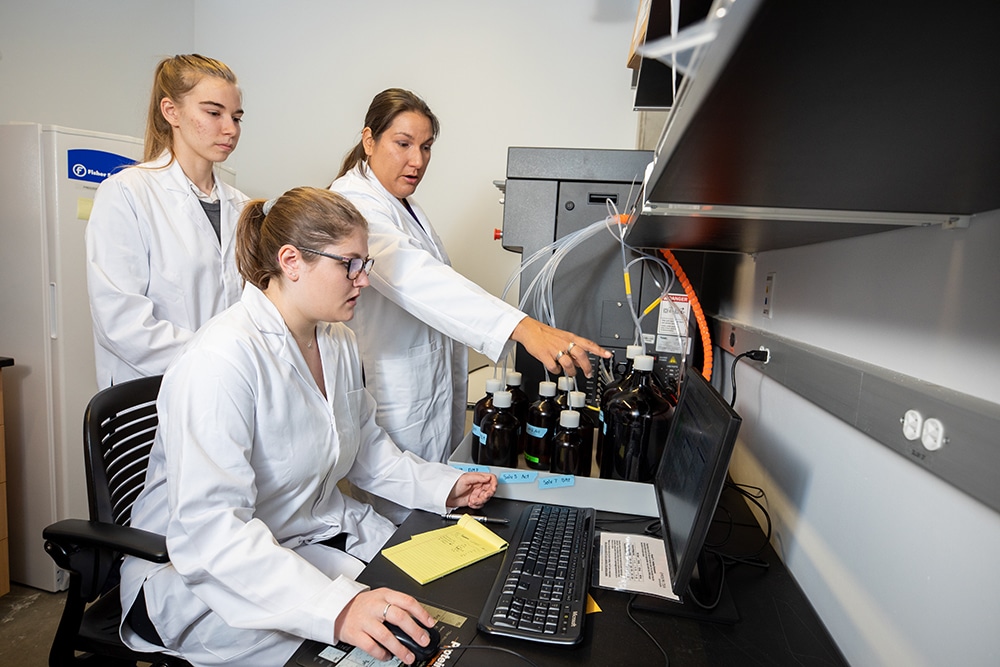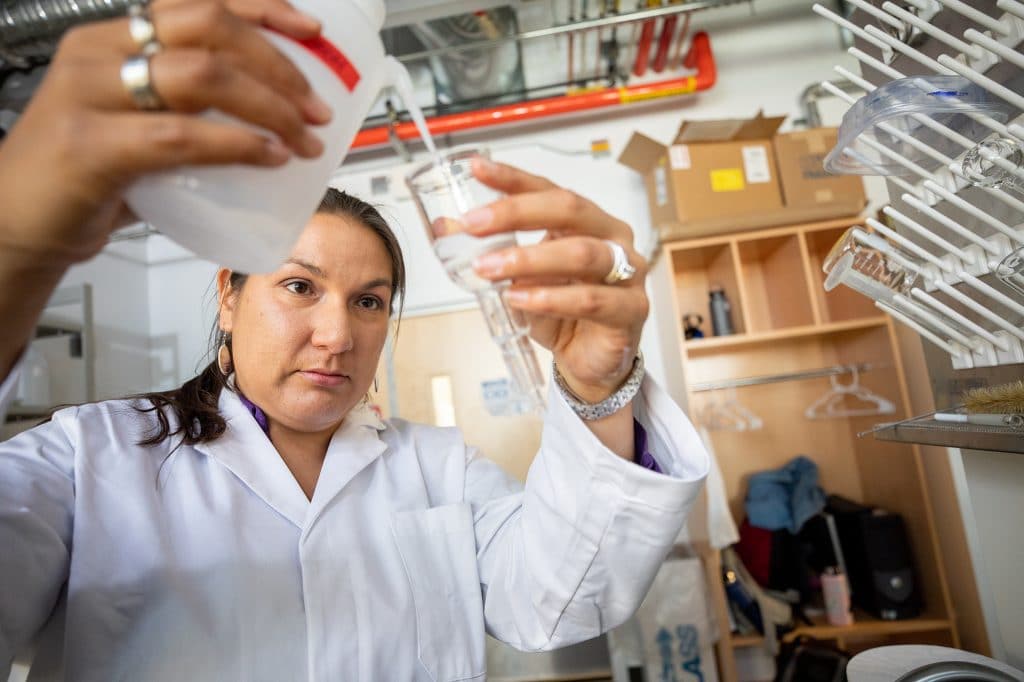Naomi Lee, an assistant professor of chemistry and biochemistry at Northern Arizona University, received the email the night before she gave a lecture to the Maximizing Access to Research Careers students at Fort Lewis College in Durango, Colorado. It was perfect timing—giving her a new sense of purpose to motivate the students she met the following day.
For the past 18 years, Diverse: Issues In Higher Education has recognized an interdisciplinary group of minority scholars who represent the best of the U.S. academy. This year is no exception.
“On a daily basis, Dr. Lee is breaking down biases and stereotypes, transforming the views and potential of students,” Provost Diane Stearns writes in her nomination letter—the nomination that would earn Lee the much-deserved honor of the 2020 Emerging Scholars Award.
Selected based on research, educational background, publishing record, teaching record, competitiveness of field of study and uniqueness of field of study, Lee is one of 15, hand-picked from hundreds of nominations, joining the 2020 cohort of Emerging Scholars. These professors have distinguished themselves in their various academic disciplines and have had broad impact in their universities and beyond.
“I didn’t even know I was nominated!” Lee said. “In fact, I almost ignored the email since I thought it might be spam. However, once I read it, I was completely shocked and honored.”
Gabe Montaño, professor and department chair in the Applied Physics and Materials Science department, spearheaded Lee’s nomination, and Stearns submitted the letter, highlighting her accomplishments and the impact she has on the university, NAU students, fellow faculty and surrounding communities.
“In addition to being an emerging scientific leader, Dr. Lee is an education beacon, mentor and role model,” Stearns writes.
Of Native American descent, Lee, who was highly recruited by several prestigious institutions in 2018, chose NAU because of its diversity and the opportunity the university provided to have the greatest impact on Native American students. One of the NAU’s five strategic goals is to become the nation’s leading university serving Native Americans; currently, more than 1,500 Indigenous students from more than 115 tribal nations throughout the country attend. Lee’s dedication to Native Americans—both in research and mentoring—will only help the university further that mission.
“I once heard someone say, ‘Research is supposed to be culturally neutral, but someone’s culture is always influencing it,’” Lee said. “As a Native researcher, it is my duty to serve my community in order to ensure ethical and relevant research is conducted.”

“She is quickly becoming one of the most highly sought-after science faculty at NAU with students requesting to work with her on a continual basis. She has already mentored 23 students at the current early stage of her career path,” Stearns said. “She is creating a deep and diverse student research experience that will launch many future STEM careers.”
Lee’s research focuses on novel vaccine development. She also focuses her work on improving the health care of Indigenous populations through health disparities research and STEM education.
“Scientifically, I aim to be the first Native researcher that designs a vaccine specifically for Native communities,” she said. “While my work may be beneficial to the general population, I strive to look at research questions through an Indigenous lens. For example, I am collaborating with colleagues at the University of New Mexico on a vaccine against opioids. We see the impact the opioid epidemic is having on a national level. However, my interest in the project was because of the impact opioids are having across our Native American communities. I want to use my skills to make healthier and happier communities.”
Throughout her career, Lee has been published multiple times, including a study in the Journal of Infectious Diseases of the Oxford University Press that found American Indian and Alaska Native women are at greater risk of HPV and cervical cancer than their white counterparts; given nearly two dozen talks and presentations; and has received more than $800,000 in research funding. She also is active duty in the National Guard with multiple awards to her name, including the Army Achievement Medal.
“As a Native American female scientist and a highly decorated Army captain who devotes her time to advancing opportunities for all students, particularly underrepresented minorities in STEM, Dr. Lee is outstanding and truly deserving of this award,” Stearns said.
Lee was recognized in the Jan. 23 Emerging Scholars edition of Diverse: Issues In Higher Education.
Carly Banks | NAU Communications
(928) 523-582 | Carly.Banks@nau.edu




